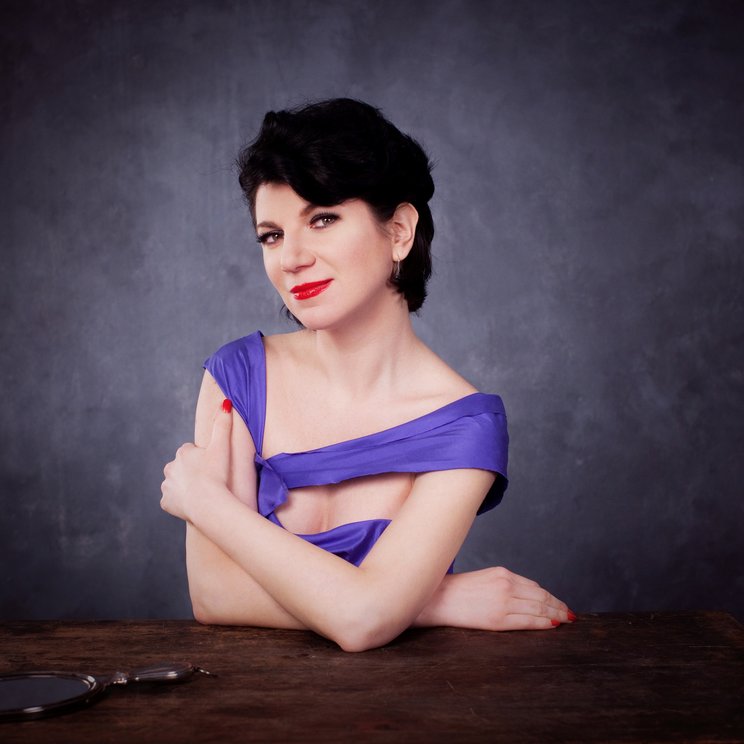
Elisabeth Kulman
Vita
Elisabeth Kulman, who was born in 1973 in Burgenland, Austria, initially focused on Slavic languages and Finno-Ugric Studies in Vienna, but in 1995 she decided to study singing with Helena Lazarska and graduated with distinction in 2001. In the same year, Kulman made her debut at the Vienna Volksoper as Pamina in The Magic Flute, launching a successful career as a soprano. In 2005 she made a transition to the mezzo and alto repertoires, which she has sung ever since. Credits include Gluck’s Orpheus at the Opéra national de Paris and the Salzburg Festival; Prince Orlofsky (Die Fledermaus), Mrs. Quickly (Falstaff), and Herodias (Salome) at the Vienna Staatsoper; and Carmen at the Berlin Staatsoper. Kulman covers an historical and stylistic spectrum that ranges from Baroque opera and bel canto through Richard Wagner to contemporary music. She performed in Offenbach’s Barbe-Bleue at the styriarte as well as in a Mozart-Da Ponte cycle at the Theater an der Wien with Nikolaus Harnoncourt. Herbert Blomstedt, Mariss Jansons, Zubin Mehta, Kirill Petrenko, Sir Simon Rattle, and Christian Thielemann are also among her partners on the podium. Since 2015, Kulman has concentrated her artistic activities on lieder recitals, concerts, and concert opera performances. These also include such interdisciplinary programs as Mussorgsky Dis-Covered with a jazz quartet, Mahler Lieder with the Ensemble Amarcord Wien, and Hungaro Tune with symphony orchestra and jazz soloists. Her most recent project is the “multi-genre music show” La femme c’est moi, which she performed in the 2018-19 season in Munich, Vienna, and Tokyo as well as at the Heidelberger Frühling Festival. Elisabeth Kulman is committed to the “art but fair” initiative, which advocates better working conditions for artists.
LUCERNE FESTIVAL debut in the summer of 2013 as Fricka and Waltraute in Wagner’s Der Ring des Nibelungen.
July 2019